Research Article
İnceleme makalesi
Issue Editorial Board





 Web
Web



 Web
Web
Małgorzata Fedorowicz-Kruszewska is a professor in the Institute of Information and Communication Research at the Nicolaus Copernicus University in Toruń, Poland. Her research interests focus on the concept of sustainability, green and sustainable libraries, access to information for people with disabilities, and implementing universal design in cultural institutions. She has authored three books and a few dozen research papers and prepared several edited volumes.

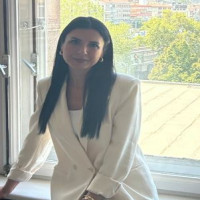


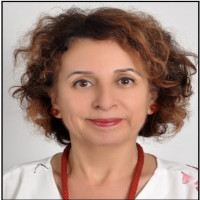
Çukurova Üniversitesi Eğitim Fakültesi İngiliz Dili Eğitimi Anabilim Dalından mezundur. Aynı üniversitede Yüksek lisans ve doktorasını yabancı dil olarak İngilizce üzerine yapmıştır. Türkçeyi yabancı dil olarak öğretimi 1988-1992 yılları arasında İncirlik Amerikan üssünde Family Support Center ile Maryland Üniversitesinde gönüllü olarak Türk kültürü ve Türkçe dersleri vermesiyle başlamıştır. 2004-2006 arası MEB Dışişleri Genel Müdürlüğünün yurt dışı Türkçe okutmanlık sınavını kazanarak Belarus’un başkenti Minsk’e Türk Dili Okutmanı olarak iki ayrı üniversitede (Minsk Devlet Yabancı Diller Üniversitesi ve Belarus Devlet Ekonomi Üniversitesi) Türkçe dersleri ve Türk kültürü ile ilgili seminerler vermiştir. 2012 YÖK Öğretim Üyesi Geliştirme Programı kapsamında Amerika’da Portland Devlet Üniversitesi, Pennsylvania Üniversitesi, Columbia Üniversitesi, New York Üniversitesi, Yale Üniversitesi ve Princeton Üniversitesi’nde Türkçe derslerini gözlemlemiş, ders vermis ve taslak kitabını Türkçe öğretmenleriyle paylaşmıstır. 2014-2020 yılları arasında Yunus Emre Enstitüsü, Gazi Üniversitesi, Mersin Üniversitesi, Adıyaman Üniversitesi, İstanbul Aydın Üniversitesi, Sakarya Üniversitesi, Dicle Üniversitesi’nde yabancı dil olarak Türkçe öğretimi sertifika programlarında eğitmen olarak görev almıştır. Yabancı dil öğretimi ve yabancı dil olarak Türkçe öğretimi alanında yayınlanmış 107 çalışması (kitap, kitap bölümü/makale/bildiri) ile 5 kitabı vardır.
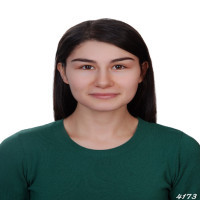

Currently, I work at Galatasaray University in the Department of French Language and Literature. I got my MA degree in Ankara University. I had my PhD in the Department of French Language and Literature at Ankara University in October 2019, with a thesis entitled as "The Notion of Memory in the Roman Noirs of Didier Daeninckx" My research interests are, Contemporary French Literature, Visual Cultures and Cultural Studies, Reprensentations of War, Identity, Travel Literature and Migration.
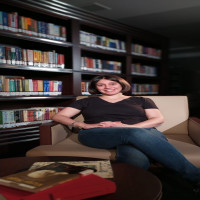

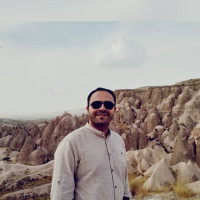
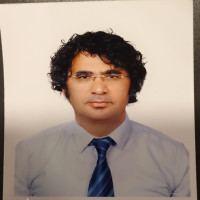
Issue Reviewers
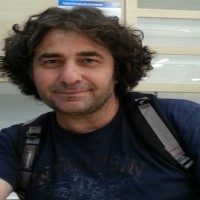

Öğretim üyesi, yazar ve çevirmen. Karşılaştırmalı Kültür Çalışmaları alanındaki yüksek lisans ve doktorasını Kyoto Üniversitesi’nde tamamladı. Loti'yi Anlamak - Pierre Loti'nin Doğusu (2011), Japonya’da Türk İmgesinin Oluşumu (2014), Yerleşik Yabancı Pierre Loti (Gözden geçirilmiş yeni baskı, 2018) adlı inceleme kitapları ile Maruko’nun Yolculuğu (2019) adlı çocuk kitabı ve Dağın Rüyası (2022) adlı romanın yazarıdır. Haruki Murakami başta olmak üzere Kenzaburo Oe, Yukio Mishima, Natsuko Imamura, Mieko Kawakami'nin eserlerini çevirdi. En Sevilen Japon Masalları (2022) seçkisini hazırladı. Edebiyat dergilerinde özgün haikuları ile Matsuo Basho ve Taneda Santoka’dan yaptığı çeviriler yayımlanmıştır. I. Boğaziçi Kitap Fuarı Haiku Yarışması Mansiyon Ödülü (2010), Japonya Dışişleri Bakanı Ödülü (2020), Kitap Dergisi Yılın Çeviri Kitabı Ödülü (2023) (Haruki Murakami Sözlüğü) ve Talât Sait Halman Çeviri Ödülü (2024) (Kenzaburo Oe, Suda Ölüm) sahibidir.
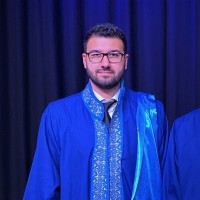
Editor-in-Chief: MetaScience: Journal of the History and Philosophy of Science (Official abbreviation: MetaScience JHPS)
https://metasciencehps.org/
Atatürk Üniversitesi Fen-Edebiyat Fakültesi Fransız Dili ve Edebiyatı Bölümü'nden mezun olan Ayten ER, Yüksek Lisans ve Doktora çalışmalarını Hacettepe Üniversitesi'nde tamamladı. Araştırma yapmak üzere belirli dönemlerde yurtdışında bulundu. 2004 yılında Profesörlük unvanını Atatürk Üniversitesi'nde aldı. 2007-2018 yılları arasında Gazi Üniversitesi Edebiyat Fakültesi Batı Dilleri ve Edebiyatları Bölümü'nde görev yaptı. 2018 yılından bu yana Ankara Hacı Bayram Veli Üniversitesi Edebiyat Fakültesi Batı Dilleri ve Edebiyatları Bölümü Fransız Dili ve Edebiyatı Anabilim Dalı'nda görev yapmaktadır. ER'in yurtiçi ve dışında yayımlanmış çok sayıda makalesi, kitapları ve tam metin çevirileri bulunmaktadır.


1993–1997 yılları arasında Bursa Uludağ Üniversitesi İİBF Uluslararası İlişkiler Bölümü’nde lisans, 1997–2000 yılları arasında da İstanbul Üniversitesi SBE Uluslararası İlişkiler Anabilim Dalı’nda yüksek lisans eğitimini tamamlayan ÖZDAL, “Avrupa Güvenlik ve Savunma Politikası ve Türkiye” konulu tezi ile Bursa Uludağ Üniversitesi SBE Uluslararası İlişkiler Anabilim Dalı’nda doktor unvanını almıştır.
Ocak 2011’de Siyasi Tarih alanında Doçent unvanını alan Barış ÖZDAL, Ağustos 2016’dan itibaren Bursa Uludağ Üniversitesi İİBF Uluslararası İlişkiler Bölümü Siyasi Tarih Anabilim Dalı’nda Profesör öğretim üyesi olarak görev yapmaktadır ve Anabilim Dalı Başkanlığını yürütmektedir.
Diplomasi Tarihi, Dünya Tarihi, Avrupa Güvenliği, Türkiye-Avrupa Birliği İlişkileri, Uluslararası Göç ve Nüfus Hareketleri, Türkiye-Ermenistan İlişkileri ile Kıbrıs Sorunu üzerine ulusal ve uluslararası düzeyde çok sayıda makale, bildiri ve kitap bölümü tarafından yayımlanmıştır.

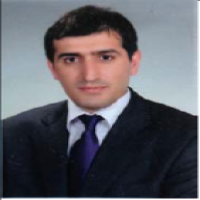
 Web
Web
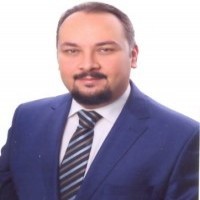
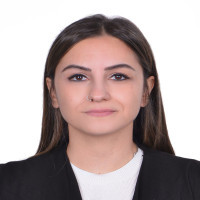
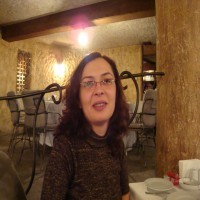

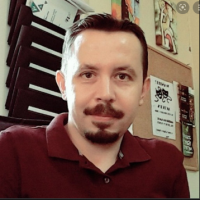
Enes Kavak is currently working as an assistant professor at Gaziantep University and a founding member of Theatre and Drama Network (TDN) in Turkey. He received his PhD in English Literature from the University of Leeds in the United Kingdom in 2015. His doctoral research titled “Spectacle, Performance and New Femininities in the Plays of Suffrage Playwrights between 1907 and 1914” focuses on Edwardian women’s political theatre. He is the co-editor of edited volumes titled English Studies in the 21st Century and New Readings in British Drama: From the Post-War Period to the Contemporary Era. He is also one of the contributors to the edited volume "Post-Theories in Literary and Cultural Studies" which was published by Rowman & Littlefield in 2022. His recent research focuses mostly on suffrage literature, dramatic and literary theories, contemporary drama and theatre.
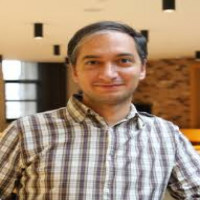
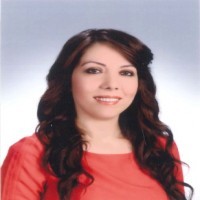
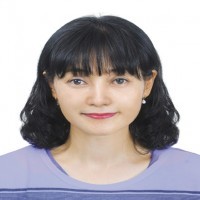

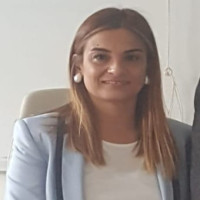
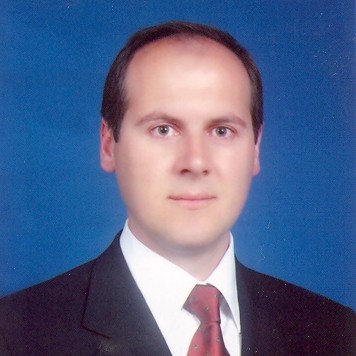
Yakınçağ Osmanlı tarihi ve Avrupa tarihi alanında çalışmalar yapmaktadır.
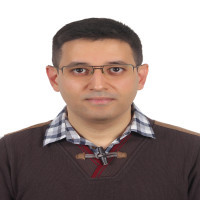

Habib Tekin 1989 yılında Almanya’nın Mainz şehrinde doğmuş, eğitim hayatının büyük kısmını yurtdışında geçirmiştir. 2009 yılında Almanya’nın Frankfurt şehrinde bulunan Max-Beckmann-Lisesi’nden mezun olmuştur. Aynı yıl Mannheim ve Ruprecht-Karls-Üniversitesi Heidelberg’de Çift Anadal Lisans ve Yüksek Lisans ortak programına kayıt olan Tekin, bu kapsamda Alman ve İngiliz Filolojisi derslerini almış, pedagojik formasyon’unu Pädagogische Hochschule Heidelberg Üniversitesi’nde tamamlamış ve Mart 2016 tarihinde Alman Federal Devleti’nin düzenlemiş olduğu devlet sınavını başarıyla tamamladıktan sonra Karlsruhe Eyaleti Öğretmenler Sınav Başkanlığı tarafından Almanca ve İngilizce Öğretmenliği bölümlerinden mezun olmuştur.
2010 yılında İngilizce dil bilgisini geliştirmek için İngiltere’nin Brighton ve Londra illerinde bulunmuştur. 2004 yılından 2009 yılına kadar devlet destekli bursu, 2009 yılından 2016 yılına kadar Federal Alman Devleti bursu almıştır. 2020 yılından itibaren ise Mannheim Üniversitesi üzere Alman Akademik Değişim Programı'ndan (DAAD) doktora tezi için burs almıştır. 2018-2021 yılları arasında Marmara Üniversitesi, Bilimsel Araştırmalar Projesi Birimi tarafından doktora tezini destekleyen proje kapsamında çalışmıştır.
2017 yılında Marmara Üniversitesi, Sosyal Bilimler Enstitüsü’nde Doktora programında kayıt olmuştur. Alman Dili ve Edebiyatı Anabilim Dalı’nda Yahudi yazar "Jakob Wassermann’ın Eserlerinde Yahudi Düşmanlığı İmgeleri" konulu tez çalışmasını Nisan 2021 tarihinde savunmuştur. Marmara Üniversitesi, Fen-Edebiyat Fakültesi, Alman Dili ve Edebiyatı Bölümü’nde Doçent olarak çalışmaktadır. İleri derecede Almanca ve İngilizce, orta derecede Fransızca ve Latince bilmektedir.
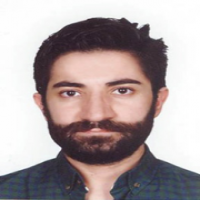


14 Ocak 1968’de Ankara’da doğdu. İlk, orta ve lise öğrenimini adı geçen kentte tamamladı. 1985-1989 öğretim yılında, Ankara Üniversitesi, Eskiçağ Dilleri ve Kültürleri Bölümü, Latin Dili ve Edebiyatı Anabilim Dalı’nda yükseköğretimini tamamladı. Üniversitesi eğitiminden yaklaşık yedi yıl sonra Yüksek Lisans yapmak üzere akademiye geri döndü. 1997-1999 yıllarında Ankara Üniversitesi, Sosyal Bilimler Enstitüsü Eskiçağ Tarihi Anabilim Dalı’ndan “Hellenistik Dönem’ de Pergamon Krallığı ve Roma Devleti İle İlişkileri” başlıklı yüksek lisans tezi ile mezun oldu. 2000-2003 yıllarında yine aynı anabilim dalında “Neşredilmiş Yazıtlar Işığında Hellenistik Dönem’de Pergamon Kenti Tanrı ve Kültleri” başlıklı doktora teziyle de doktora eğitimini tamamladı.
Yüksek Lisans ve Doktora programlarına devam ettiği 1997-2003 yılları arasında Ankara’da Ankara Üniversitesi, Dil ve Tarih-Coğrafya Fakültesi, Fakülte Kütüphanesi’nde görev yapan ÜRETEN, 2004 yılında bu görevinden ayrılarak Adnan Menderes Üniversitesi, Fen Edebiyat Fakültesi Tarih Bölümü’nde Okutman olarak göreve başladı.
Adı geçen kurumda 2004-2013 yılları arasında Yardımcı Doçent, 2013-2018 yıllarında Doçent olarak görev yapan Hüseyin ÜRETEN, 2018 yılında da Profesör olmuştur.
Bölüm Başkanlığı, Anabilim Dalı Başkanlığı, Fakülte Yönetim Kurulu Üyeliği ve Üniversite Bilim Kurulu Üyeliği gibi idari ve akademik görevlerde de bulunmuş olan Prof. Dr. Hüseyin ÜRETEN’in “Tralleis Augustus Neokratı”, “Kardeşim Quintus’a Mektuplar I”, “Kardeşim Quintus’a Mektuplar 2” ve “Hellenistik Dönem’de Pergamon Kenti Tanrı ve Kültleri” isimli kitapları ile ulusal/uluslararası dergilerde yayınlanmış pek çok makalesi ve tebliği vardır.
Üç aylık Amerika YÖK Bursu ve Litvanya ile Romanya’da ERASMUS kapsamında alanıyla ilgili araştırma ve incelemelerde bulunmuş olan Prof. Dr. Hüseyin ÜRETEN, Türkiye’nin çeşitli üniversitelerinin yayınlamış olduğu birçok bilimsel derginin yayın kurulu üyeliğini de yürütmektedir.
Evli ve iki çocuk babası olan Prof. Dr. Hüseyin ÜRETEN, klasik Latince ve Hellence bilmektedir.
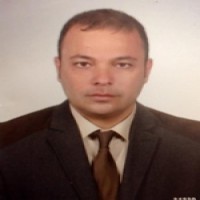



 Web
Web
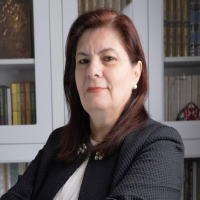
25.07.1966 yılında Giresun’un Bulancak İlçesinde doğdu. İlk-Orta ve Lise tahsilini Trabzon’da tamamladı. 1985 yılında İ.Ü. Edebiyat Fakültesi Tarih Bölümüne girdi ve bu bölümden 1989 yılında mezun oldu. Aynı yıl Tarih Bölümü Genel Türk Tarihi Anabilim Dalında Araştırma Görevlisi olarak göreve başladı. 1992 yılında “Türk’ün-İslam’la Bütünleşmesi” adlı Yüksek Lisans tezini bitirdi. 1992-1993 öğretim yılında Doktora ders programını takip etti. l993-1995 yılları arasında hem Anabilim Dalı için son derece önemli olan Rus dilini öğrenmek hem de hazırlayacağı doktora tezi konusunda kaynak çalışması yapmak üzere Türk Dünyası Araştırmaları Vakfı tarafından Kazakistan’ın Almatı şehrine gönderildi. Yine bu yıllarda Almatı’daki Abay Adındaki Almatı Devlet Üniversitesinin Doğu Dilleri Bölümünde Türk Dili, Edebiyatı, Tarihi ve Kültürü ile ilgili dersler verdi. Doktora konusu olarak aldığı İlk Rus Yıllıklarının eski Rusça yazılmalarından dolayı 1996’da Moskova ve Almatı’ya giderek 3 ay boyunca çok yoğun bir şekilde eski Rusça dersler aldı. 02.07.1998 tarihinde “İlk Rus Yıllıklarında Türkler” adlı doktora tezini tamamlayarak doktor oldu. 1998-1999’da (1 yıl) Doktora sonrası yapacağı çalışmalara malzeme toplamak ve sahalarında çıkan yayınları görmek gayesi ile yeniden kendi imkânları ile Kazakistan ve Rusya’ya gitti. 03.10.2000 tarihinde Tarih Bölümü Genel Türk Tarihi Anabilim Dalına Yardımcı Doçent olarak atandı. 06.04.2006 tarihinde ise Doçent unvanını aldı ve 2007 tarihinde Doçentlik kadrosuna atandı. 2008-2010 tarihleri arasında da Türkiye ile Kazakistan arasında bir köprü vazifesi gören Hoca Ahmet Yesevi Adındaki Uluslararası Türk-Kazak Üniversitesinde görev yaptı. Bu arada yurtiçinde ve yurtdışında (Rusya, Kazakistan, Makedonya, Romanya, Ukrayna, Amerika, Kanada) uluslararası birçok sempozyuma katıldı.
07.12.2011 Tarihinde Genel Türk Tarihi Anabilim Dalı’na Profesör olarak atandı. 19.01.2012/19.01.2018 tarihleri arasında Genel Türk Tarihi Anabilim Dalı Başkanlığı görevini yürüttü.
Kadın Akademisyenler Derneği (TÜRKKAB), Umay Ana Türk Dünyası Kadınlar Birliği Başkanıdır. Uydu Yücel evli ve iki erkek çocuk annesidir. Bildiği diller: Rusça ile Türk lehçelerinden Kazakça, Kırgızca ve Tatarca; Orta derecede İngilizce.
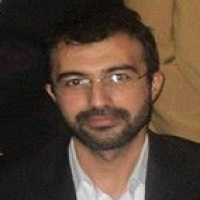

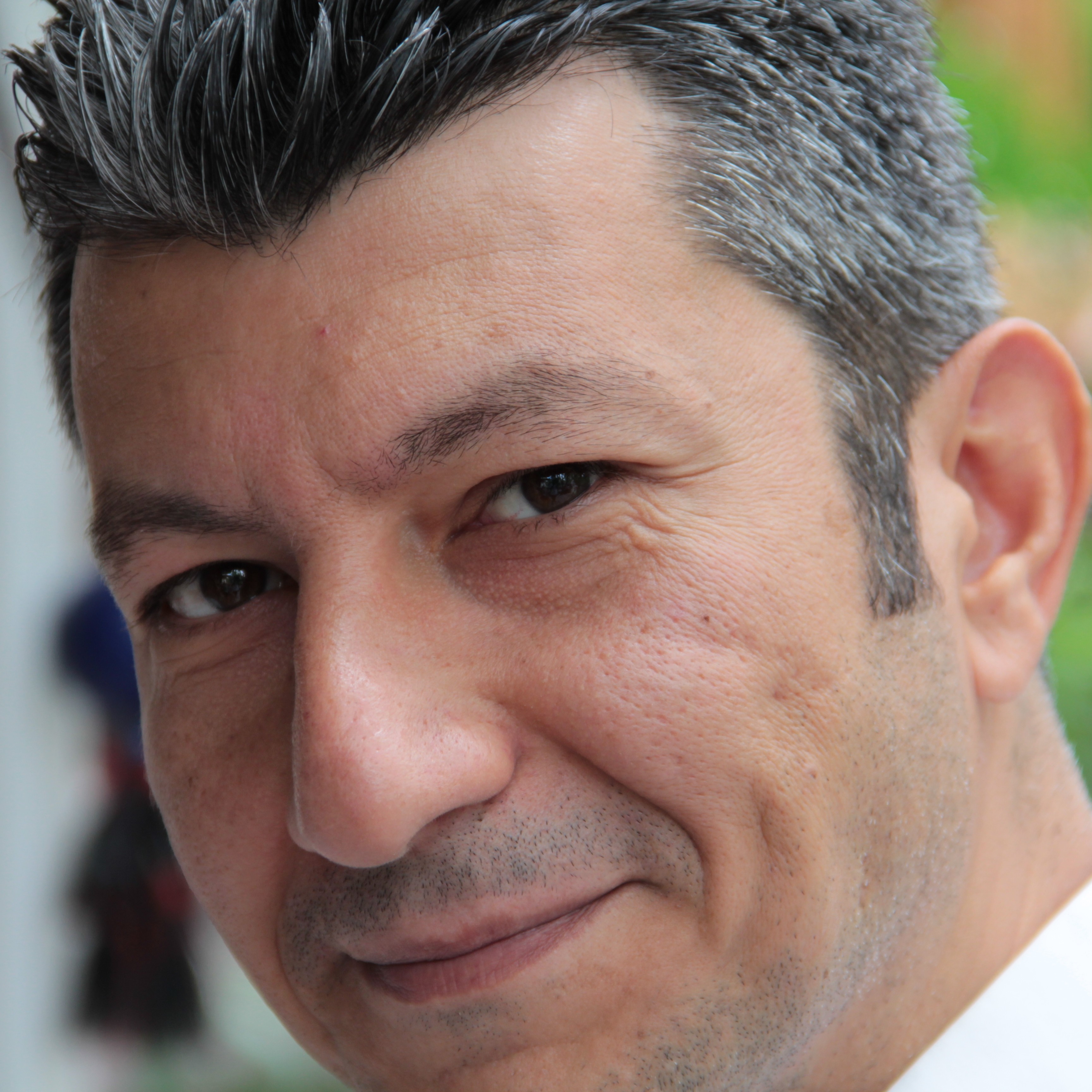
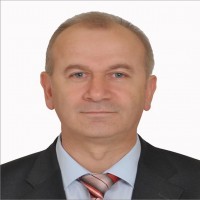
Yarullina Yıldırım Ramilya (Ramile) Eshadulla kızı, 18 Ocak 1971 tarihinde Tataristan'ın Kaybıç ilçesinde dünyaya geldi. 1990-1995’te Kazan Üniversitesi Tatar Filolojisi, Tarih ve Doğu Dilleri Fakültesinde eğitim aldı. Yüksek lisans tezini XX. Yüzyıl başı Tatar nesrinde Tatar soylularının hayatının yansımasını inceleme üzerine hazırladı. 1995-1998’de Tataristan Bilimler Akademisi Tatar Ansiklopedisi Enstitüsünde doktora programını tamamladı ve Aralık 1998’de Prof. Dr. M. Hasanov’un danışmanlığında hazırladığı “Ayaz İshaki Eserlerinin (1898-1906) Fikir ve Sanatsal Özelliği” konulu tezini savundu. 1995 yılında Tatar Devlet Sosyal Bilimler Enstitüsünün Edebiyat Bilimi Bölümünde önce öğretim görevlisi (1995-1999), sonra Doç. Dr. (1999-2005) olarak çalıştı. 2005-2009 yıllarında Tatar Devlet Hümanitar ve Pedagoji Üniversitesi Tatar Edebiyatı Bölümünde devam etti. 2010-2012’de Türkiye’nin Adıyaman Üniversitesi Fen-Edebiyat Fakültesi Türk Dili ve Edebiyatı Bölümünde Yabancı Uyruklu Öğretim Üyesi; daha sonra Turizm İşletmeciliği ve Otelcilik Yüksekokulunda Bölüm Başkanı (2012 –2014), 2014-2018’de Turizm Fakültesi Dekanı olarak görev yaptı. 2014’te profesör unvanı verildi. Ağustos 2018’den itibaren İnönü Üniversitesi Fen Edebiyat Fakültesi Türk Dili ve Edebiyatı Bölümünde Çağdaş Türk Lehçeleri ve Edebiyatları Ana Bilim Dalı Başkanı olarak çalışmaktadır. Bilimsel ilgi alanı XX. yüzyıl Kazan Tatar sözlü ve yazılı edebiyatı, Tatar ve Türk Dünyası edebiyatlarının etkileşimi, edebî akımlar, kültürdilbilim vs. konular üzerinedir.


 Web
Web
Lisans: (1990-1995) Uygur Dili ve Edebiyatı/ Pekin Merkezi Milletler Üniversitesi
Yüksek Lisans: (2004-2007) Türk Dili ve Edebiyatı / İstanbul Üniversitesi Sosyal Bilimler Enstitüsü
Doktora: (2007-2014) Türk Dili ve Edebiyatı / İstanbul Üniversitesi Sosyal Bilimler Enstitüsü
Doçent: (2018) Üniversitelerarası Kurul
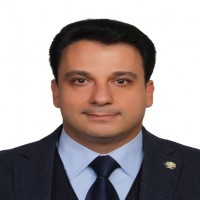
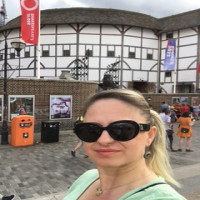

Mezun olunan okullar
Ege Üniversitesi İngiliz Dili ve Edebiyatı (2004)
Dokuz Eylül Üniversitesi Sahne Sanatları (2008)
Arkansas Universitesi İngiliz Dili ve Edebiyatı (2017)
Uzmanlık Alanları:
Modern ve Çağdaş İngiliz ve Amerikan Dramatik Metinleri
17. Yüzyıl İngiliz Edebiyatı
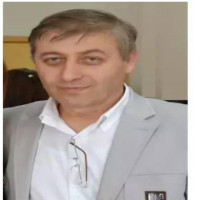
1963'te doğdu. 1981-1985 yılları arasında HÜ TDE Bölümünde askeri öğrenci olarak öğrenim gördü.
1985 yılında öğretmen teğmen olarak mezun oldu. 2003 yılına kadar TSK'nin muhtelif birimlerinde yurt içinde ve yurt dışında görev yaptı. Bu arada yüksek lisans ve doktora eğitimini Prof. Dr. Talat Tekin'in gözetiminde tamamladı. 2003 yılında Kara Harp Okulu Komutanlığında yarbay rütbesindeyken emekli oldu ve Başkent Üniversitesinde yeni görevine başladı. Türkolojinin farklı alanlarında çalışmaktadır. Çalışmaları için: bk. https://baskent.academia.edu/SuerEker
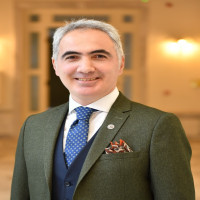




1978 Berlin doğumlu Doç. Dr. Taylan Maral, Anadolu Üniversitesi İşletme Bölümünden lisans mezunu olmuştur. Yüksek lisans eğitimini İstanbul Arel Üniversitesi Sosyal Bilimler Enstitüsü Medya ve Kültürel Çalışmalar Programında tamamlamış; doktora derecesini ise İstanbul Üniversitesi Gazetecilik Anabilim Dalından, “12 Eylül 1980 Müdahalesi Öncesi ve Sonrasında Hürriyet Gazetesinin Yayın Politikası” başlıklı tez çalışması ile almıştır.
Halen İstanbul Gelişim Üniversitesi İktisadi, İdari ve Sosyal Bilimler Fakültesi Yeni Medya ve İletişim Bölüm Başkanı olarak görev yapmaktadır. Akademik ilgi alanları gazetecilik, sosyal medya, yeni medya araştırmaları, yapay zeka ve oyunlaştırma üzerine yoğunlaşmaktadır.
Yayınlanmış eserleri arasında “Kürt Kimliğinin Siyasallaşma Süreci ve Medya” ve “Birinci Kuvvet Basın” başlıklı kitapları bulunmaktadır. Ayrıca, yapay zeka ve gazetecilik ile gazetecilikte oyunlaştırma ve haber oyunları konularında birçok kitap bölümüne katkı sağlamış ve bilimsel makaleler kaleme almıştır. Dijital fotoğrafçılık, yeni medya sinema ve dijital içerik üretimi gibi alanlarda çeşitli kurullarda aktif olarak görev almakta ve jüri üyeliği yapmaktadır.
Gazete ve dergilere köşe yazısı da yazan Maral, geleneksel basın unsurlarının dijitalleşme çalışmaları üzerine araştırmalar yapmaktadır.
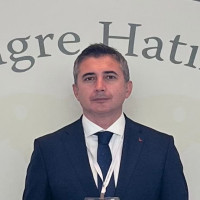
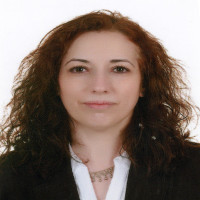
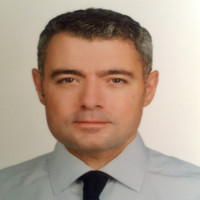
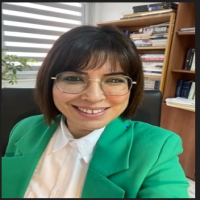
Aim & Scope
Ankara University Journal of the Faculty of Languages and History-Geography (DTCF Journal) is an international, scholarly, and blind-reviewed journal published by Ankara University. The journal aims to increase and extend scholarly studies which will contribute to the scientific development in the fields of social sciences and humanities.
The Journal includes articles in all fields of social sciences, particularly language, culture, literature, history, geography, philosophy, psychology and sociology.
Authors of manuscripts submitted to the journal must have an academic title, or must be a PhD student. Doctoral students should send dissertation-related articles in collaboration with their advisors. If the subject material of the article is unrelated to their dissertation, then the submitted work should be co-authored with a faculty member. Articles extracted from Master's thesis are not accepted for publication in the journal.
Author Guidelines
AUTHOR GUIDELINES OF THE ANKARA UNIVERSITY JOURNAL OF THE FACULTY OF LANGUAGES AND HISTORY-GEOGRAPHY
Ethical Principles and Publication Policy
DECLARATION OF PUBLICATION ETHICS
Please e-mail and notify us through dtcfdergisi@ankara.edu.tr once you come across unethical situations.
Price Policy
Ankara University Journal of the Faculty of Languages and History-Geography (DTCF Journal) does not charge any fees for article submission or article processing.
Sponsorship and advertisements are not allowed in line with the publication policies of the journal.
Ankara University Journal of the Faculty of Languages and History-Geography is licensed under Creative Commons Attribution 4.0 International (CC BY 4.0).
